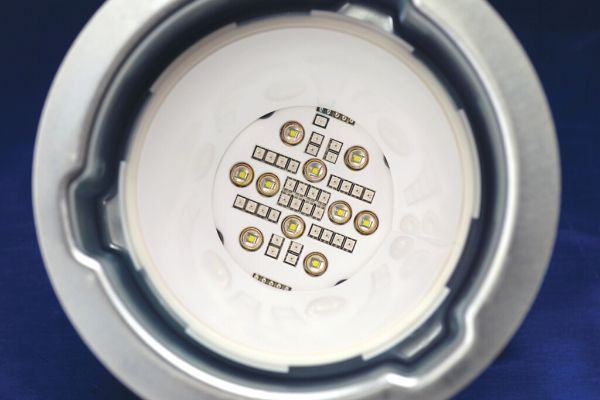Survey on Functional Limitations in Japanese Computer Software Related Patents
Fellow practitioners who deal with Japanese patent drafting may notice that there seems to be liberal employment of functional limitations in Japanese patent claims; Japanese agents seem to have a soft spot for (pure) functional/intended use/end result claim limitations, regardless of the technical field of the invention.
The Japan Patent Office (JPO) recently commissioned the well-known Shiga International Patent Office to conduct a practical research survey on the usage of functional terms in domestic computer software patents. The scope of the survey includes questionnaires for several Japanese companies.
The results of the questionnaire survey show that most companies prefer functional terms in the specification of computer software-related patent applications. One (main) reason is that respondents generally believe that often technical features are difficult to be expressed in ways other than functional terms. Interviewees generally believe that if they do not adopt functional language, they will not be able to cover a larger scope of patent applications due to third parties’ clever/unforeseeable design-around.
The Japanese Patent Law currently provides relevant provisions on the implement-ability of inventions of general technical fields, e.g., enablement provision, material supported provision, and clarity provision. However, rules regarding functional language related to computer software applications are separately listed in the examination guideline and examination manual. It is said that, in current examination practice, the interpretation of functional language in the claims is mainly based on the content of the patent claims. On the other hand, during infringement disputes, the interpretation of functional terms tends to be interpreted based on the contents in the specification. Only a few lawsuits base the content of the patent application itself to provide expiation for functional limitations. Thus, there seems to be a gap between the examination and the infringement practices.
However, current Japanese examination guidelines have yet to provide very clear criteria for software-related inventions (just like most other countries), so patent applicants can only refer to the requirements provided in the examination guidelines for now.
Therefore, we shall continue to monitor the revision process from the JPO to keep up with the development of new regulations.
(Sincere thanks to the generous sharing of this interesting information by “專利新知不藏私”)
A Surprising Turn in the Automotive SEP War?
According to FOSS PATENTS, the German Bundeskartellamt (Federal Cartel Office, FCO) filed an amicus curiae [1] brief with Nokia’s patent infringement complaints against Daimler. As a result, the Mannheim Regional Court has already postponed the ruling it was due to announce June 23 to August 4, 2020.
The amicus curiae brief focuses on whether Nokia can enforce standard-essential patents (SEPs) against Daimler while refusing to grant licenses under the relevant patents to suppliers of Daimler, including Continental and Valeo. Related questions include:
1) whether a SEP holder is free to offer a license only to a particular level of the supply chain;
2) whether a SEP holder is entirely free to choose the target of an infringement action regardless of its position in the supply chain;
3) whether a SEP holder can pursue injunctive relief against an end-product maker while refusing to fully license its suppliers;
4) whether there are specific cases in which the suppliers are entitled to a license.

The FCO proposed to request the Court of Justice of the European Union (CJEU) to opine on the above questions. If the answer to these problems is not good for Nokia, Nokia may not be able to charge higher royalties from end products in the future. This is undoubtedly a big deal for SEP holders and could even reverse the global automotive SEP patent war.
Judging from past cases, it remains an open issue whether a SEP holder is obliged to license any willing licensee. If relevant cases in the future develop toward a direction that the SEP holder is obliged to license to all, refusing to license upstream suppliers may breach the fair, reasonable and non-discriminatory (FRAND) principle and may even violate the competition law. Therefore, we should pay close attention to whether CJUE provides an opinion on this case. The opinion may become an important reference guideline for future SEP negotiation and litigation, and may affect the license model of the SEP holder as well as the defensive strategy of the licensees.
[1] Amicus curiae: someone who is not a party to a case who assists a court by offering information, expertise, or insight that has a bearing on the issues in the case.
Polytronics’s Subsidiary Acquires the TCLAD Department of the Henkel Group. Enterprises Should Make a Comprehensive Strategy in Advance Based on Their Own Background and Needs.
According to Economic Daily, due to the future demand of the electric vehicle industry, the need for Power System Control in electric vehicles will inevitably increase. Polytronics recently announced that its subsidiary proposed to acquire the Thermal Clad Dielectric Material department of the Henkel Group, and this acquisition is expected to provide a more complete product portfolio for Polytronics’ clients and will generate greater revenue.
Acquisitions can be divided into equity acquisition and asset acquisition. The main difference between these two kinds of acquisitions is that the buyer in the equity acquisition will acquire a certain degree of control of the target company (depending on the proportion of equity acquisition). Still, it also means the buyer will bear the target company’s debt to a certain degree. Therefore, in equity acquisition, one of the most important things a buyer to do is to perform due diligence and comprehensive assessments of the financial situation and potential debts of the target company in advance.

On the other hand, asset acquisition, which was adopted by Polytronics this time, is not to acquire any equity of Henkel but to acquire a part of Henkel’s business and property. As a buyer in asset acquisition, Polytronics needs to pay more attention to check and confirm whether the target company has delivered all items required by the asset acquisition agreement.
Besides acquisition, there are still many types and structures of M&A that could involve different legal risk, frameworks, and tax planning. Enterprises should consult with professional consultants in advance to make a comprehensive strategy for their own backgrounds and needs.

